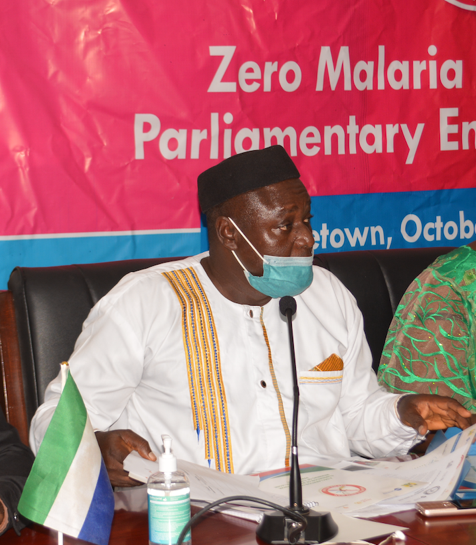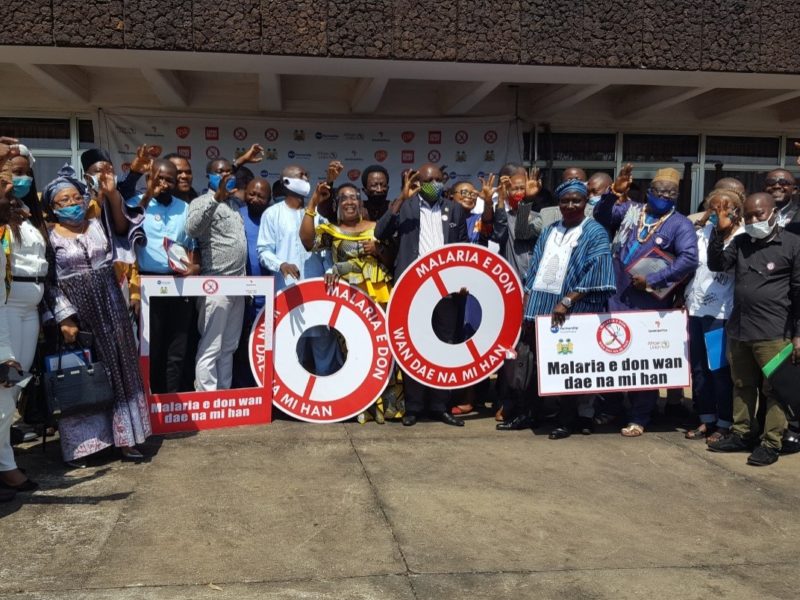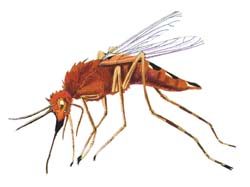More families owning and using mosquito nets in Sierra Leone
As many as one in two children under the age of five admitted into children’s wards in Sierra Leone have been there as a result of severe malaria. But Sierra Leone has been fighting back against this preventable and treatable disease that both affects individual families and costs Africa billions of dollars every year.
As of June 2011, according to a Malaria Indicator Survey, 87 percent of all households in Sierra Leone now own at least one mosquito net that has been treated with insecticide. This is a huge increase from the previous year, when just 33 percent of households owned one.
With the nets now being widely available, their use has also risen dramatically. In 2011, nearly three-quarters of households surveyed reported that children had slept under a mosquito net the night before the survey, up from less than half the previous year—an increase of 66 percent.
Over three million treated mosquito nets distributed nationwide
Sierra Leone’s rapid progress on malaria prevention is a result of the country’s adoption of the goal of universal coverage with long-lasting treated mosquito nets, and a mass net distribution campaign by the National Malaria Control Programme in November-December 2010.
As part of this campaign, approximately 3.2 million mosquito nets treated with insecticide were distributed to families across Sierra Leone, meeting the target of one net for every two people in the country, as set by the Roll Back Malaria Partnership.
If used correctly and consistently, these long-lasting treated nets are expected to protect families—including vulnerable young children and pregnant women—against malaria for at least three years, and could make a significant difference to Sierra Leone’s malaria incidence.
UNICEF has recently conducted a Multi-Indicator Cluster Survey in Sierra Leone which, when published, will provide new information on malaria indicators as well as on infant, child, and maternal mortality.
Support from the World Bank and other partners
To support the mosquito net campaign in Sierra Leone, the World Bank provided over US$ 6.6 million that covered the purchase, shipping, and delivery of over 1.1 million nets—more than a third of those distributed during the campaign.
“We have been supporting health in many ways in Sierra Leone, including helping the government to implement overall primary healthcare more efficiently,” said Vijay Pillai, World Bank Country Manager for Sierra Leone. “For malaria prevention activities to be effective, they have to be integrated into the primary healthcare framework, and periodically monitored and evaluated, as Sierra Leone and many other countries are now doing.”
Other contributors to Sierra Leone’s recent campaign included UNICEF/UMC, the United Kingdom’s Department for International Development, the International Federation of the Red Cross, Care international, Global Minimum, and Nets for Life.
“We have made very real progress towards the goal of universal coverage of our people with treated mosquito nets,” said Dr. Samuel Smith, Manager of Sierra Leone’s National Malaria Control Programme. “It is really encouraging that the ownership of these nets is actually highest among the poorest people surveyed in 2011, with over 90 percent of them owning at least one net. But for long-term success in protecting poor people from this disease, we will have to sustain these efforts.”
World Bank
Stay with Sierra Express Media, for your trusted place in news!
© 2012, https:. All rights reserved.







